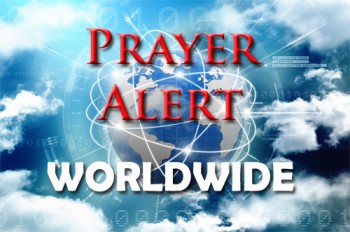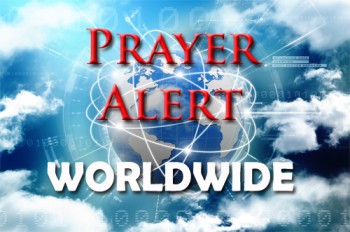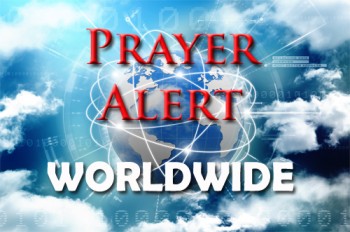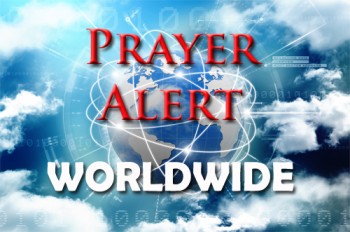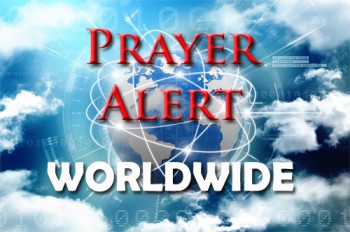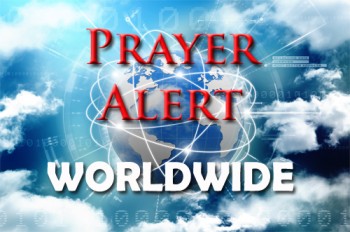Displaying items by tag: Asia
Myanmar: army promises new elections amid protests
The military held its first news conference since toppling the government. They said the armed forces would not remain in power for long, and would ‘hand power back to the winning party’ following another election. On 18 February the military ordered more arrests, and civil servants went on strike. Large numbers have protested for 16 days. ‘It is incredible to witness that our people are unified. People’s power must return to the people,’ actor Lu Min wrote on Facebook. Many of the country’s lawyers have joined the Red Ribbon Campaign calling for the restoration of democracy in the country. The Defend Lawyers website reported that forty barristers could face prosecution for participating in the anti-coup movement. Doctors Without Borders are ‘gravely concerned’ about the recent arrests and detentions of health care workers and other civilians. The situation has the potential to severely interrupt the lifesaving healthcare that they and others have been providing to the most vulnerable people in the country, particularly in the time of the Covid pandemic.
Asia Harvest: God's provision
2020 was a year that disrupted workers in Asia Harvest, a non-denominational Christian ministry working in various countries. Covid made them suddenly twice as busy as usual. The lockdowns saw mission workers helping people in their churches and communities to survive. A great harvest of new believers was reaped in many locations. In some places, believers were excluded from food distribution by callous officials and villagers. When Asia Harvest provided help, the Christians not only welcomed the crucial aid but gave some to their persecutors. This attracted many to the truth of the Gospel and the love of Jesus. Asia Harvest never asks for anything except prayer, as they believe the Holy Spirit leads people to give financially if he wants them to give. Remarkably, in a year of global economic stress, the Lord provided more support than any year in its history.
Rescued from slavery
IJM Thailand was informed by the Myanmar embassy of a potential human trafficking and forced labour case. 18 Myanmar workers needed rescuing from a confectionery factory in Bangkok. They were illegally brought in and wanted to leave, but could not. IJM personnel, embassy staff, and other agencies went to a residential neighborhood and attempted to call out to the workers locked in the upper floors of a building behind locked gates. Eventually, one worker began to climb out over the gate and a ladder was brought to help him escape. 17 other migrant workers followed him to freedom. They will undergo Covid testing and continue to receive IJM legal and aftercare support in a safe location. Pray for the successful prosecution of their captors and traffickers.
Myanmar: Christian villagers flee military
Thousands of Christian villagers fled military bombardment in Karen State on the same day that Myanmar leader, Aung San Suu Kyi, was ousted from power in a military coup. The army shelled districts of mainly Christian ethnic Karen villagers, forcing them to escape into inhospitable mountainous jungle with what little they could carry. Tens of thousands of people have taken to the streets in protest since Aung San Suu Kyi and her party, the National League for Democracy, were overthrown three months after winning a landslide election They have been replaced with a military government. The ethnic cleansing tactics used by the army against the Kachin were condemned in a 2018 UN Human Rights Council report with many testimonies of torture, rape and other abuses by military personnel. In 2020, 100,000 predominantly Christian Kachin remained scattered across 138 refugee camps, in crowded conditions with little sanitation and at great risk from coronavirus.
Israel: soaring crime in Arab towns
Ahead of the March elections, prime minister Benjamin Netanyahu is repeating promises he made nine years ago to control crime rates in Arab towns and villages. A recent firefight broke out on 1 February, when the police tried to stop men from shooting at a house. The Arab gang started shooting at the police with automatic weapons. When it was over, two young people were dead. One was suspected of firing at the house, but the other, Ahmed Hijazi, was a nursing student who happened to be in the vicinity but was not involved in the incident. The next day, thousands from local Arab towns and villages took to the street to protest Hijazi’s death and the police's inability to rein in crime in Arab society. Over the weekend, thousands more marched against escalating crime rates. Netanyahu has spent the last few weeks visiting Arab towns and villages and holding Zoom meetings with Arab mayors to discuss crime and violence in their towns.
Iraq: IS resurgence with Baghdad bombings
Christians in Iraq remain shaken by the twin suicide bombing in Baghdad. It was the first mass-casualty attack since 2018, killing at least 32 people and wounding more than a hundred. IS took credit, stirring fears of a resurgence. Samuel of Redemptive Stories says believers are shaken, but they’re pressing on to make Christ known. ‘I had the privilege to talk to a pastor on the very night of the suicide attacks and he said, ‘Our spiritual condition as a church is well; our physical condition is well; but our emotional state, as a church, is sad. The church had seen three years of almost peaceable activity. Now suddenly, out of nowhere, there are these significant attacks. The hope of Christ shines brightly amid such tumult.’
Turkey: escalation of religious freedom violations
International Christian Concern (ICC) has observed a marked increase of reported religious freedom violations within Turkey since the start of the New Year. While most of these recent violations impact church buildings, they also include a lack of interest by the authorities in pursuing and protecting justice for Christian victims. Churches are seen as a source of income both by the government (faith tourism) and by society (treasure hunters). Otherwise, church buildings are neglected by the government and often turned into mosques. Pray for the protection and perseverance of believers in Turkey. Pray that the government will honor Christian landmarks and churches.
Indonesia: earthquake survivors
The earthquake that hit Sulawesi on Friday 15 January destroyed many Christian homes and church buildings. Survivors are in urgent need of humanitarian aid. Desperate Indonesian pastors are pleading with Barnabas Fund for suitable tents, blankets, food and baby milk for their homeless church members. The government’s emergency response and aid for the survivors is inadequate and will end altogether on 8th February. The makeshift camps are in the middle of the rainy season - humid days punctuated by intense downpours. Pray for all the hungry, homeless survivors sheltering in crude camps. May they know the peace of the Lord and hope for the future. Pray for the desperate Indonesian pastors to have the resources and support needed to look after their homeless church members.
Myanmar: military coup
Myanmar's military took power on 1 February. Aung San Suu Kyi and her National League for Democracy party are now under arrest. The coup ends a democratic experiment in a country where generals usually rule. In 2017 Suu Kyi shocked the West by defending the generals’ ‘ethnic cleansing’ of the Rohingya Muslims. But as her star faded in the West, it became brighter at home where the Rohingya are considered invaders. Riding on her popularity, her party won last November's election, intensifying tensions between the civilian government and the army. The generals only won 7% of the vote and cried election fraud, threatening to suspend the constitution if their claims were not investigated. This coup reverses the generals' declining influence in one fell swoop. The new leader, Senior General Min Aung Hlaing, will remain in charge until 2022. Meanwhile, the economy will be crippled by fresh international sanctions, and Myanmar will become the pariah it was a decade ago. There have been widespread civilian protests against the coup, and the military have responded by shutting down Facebook ‘for the sake of stability’.
His mother wondered why his face was so shiny
‘The Iranian media, schools, everything you see and hear is Islamic’, said Ramin Parsa. ‘They brainwash you. We had no magazines or books. We saw caricatures of Israeli soldiers killing Palestinian babies. They sowed hatred in our hearts.’ Ramin went to the mosque every morning to pray. Every morning at school, they shouted, ‘Death to Israel! Death to America!’ Although it is illegal, every house has a satellite dish - an alternative to non-stop religious propaganda on government channels. On the Trinity channel he heard about Jesus. Ramin didn’t immediately believe. ‘If you give Jesus your heart, he will change your life. He loves you,’ the man was saying. ‘He died for you and rose again from the dead.’ Then Ramin relented. Asking to be forgiven, he started weeping. He felt God move in his body, providing heat and warmth. He rushed to see his mother, ‘Why is your face so shiny?’ she asked, bewildered.



